Last summer, Hongkongers startled everyone – including themselves – when they turned out in record numbers to protest at the local government’s latest provocation.
There had been many such provocations since Hong Kong’s 1997 transfer from British to Chinese rule. This one was no worse than some others, but it was finally a step too far.
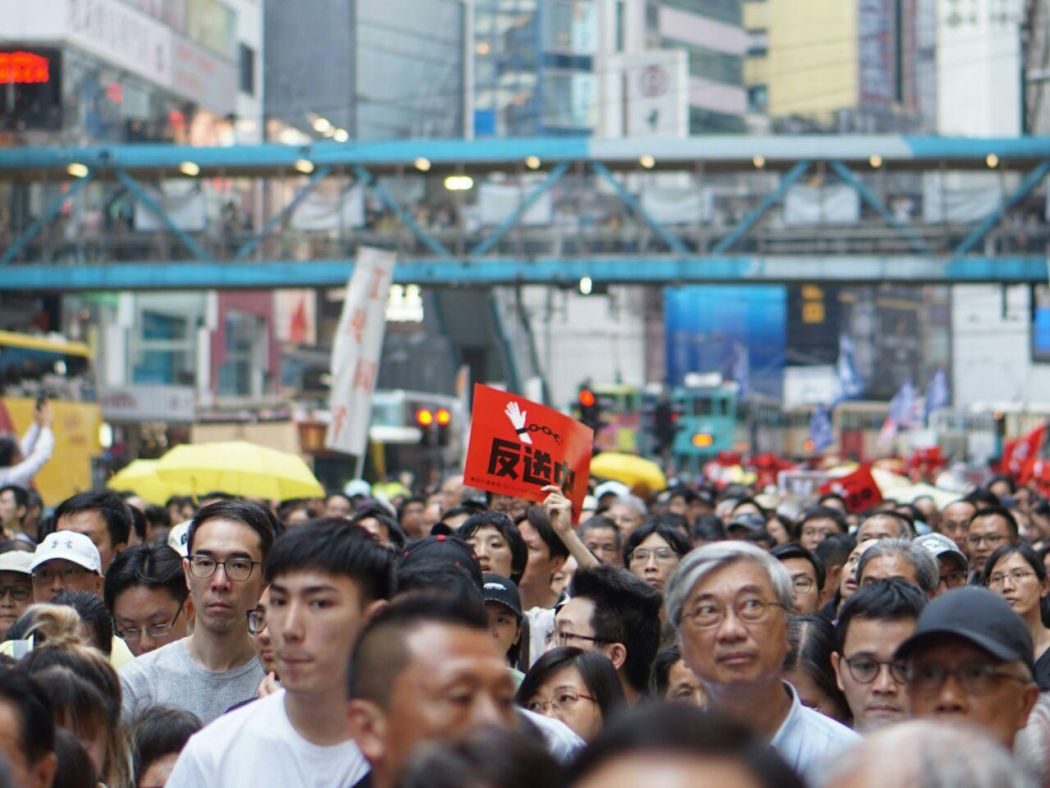
Chief Executive Carrie Lam was bent on amending Hong Kong’s extradition law in a way that would allow Hong Kong’s independent judiciary to return criminal suspects to China, where trials are not independent of political control.
Her proposal broke the one protective barrier between the Hong Kong and mainland Chinese systems that Hongkongers value above all others. She finally withdrew the bill last September, but not before the city’s long-standing tradition of peaceful protest had been shattered, along with any remaining trust for the system she led.
Late last November, Hongkongers again did what they had never done before. Turnout for the neighbourhood-level District Councils election was the highest ever recorded since the colonial government belatedly introduced universal suffrage elections in the 1980s.
Voters also delivered a landslide victory to candidates who united to run under a banner of support for the anti-extradition law protest movement – without distinguishing between its peaceful norms and the violent outbursts.
Everything about it was record-breaking: turnout, united candidates, and voters who failed to punish violators of Hong Kong’s peaceful protest tradition.
Through it all – from last June when protests erupted until the November 24 election – everyone wondered what Beijing’s response would be. Hong Kong had been promised a “high degree of autonomy” in the management of its own affairs.
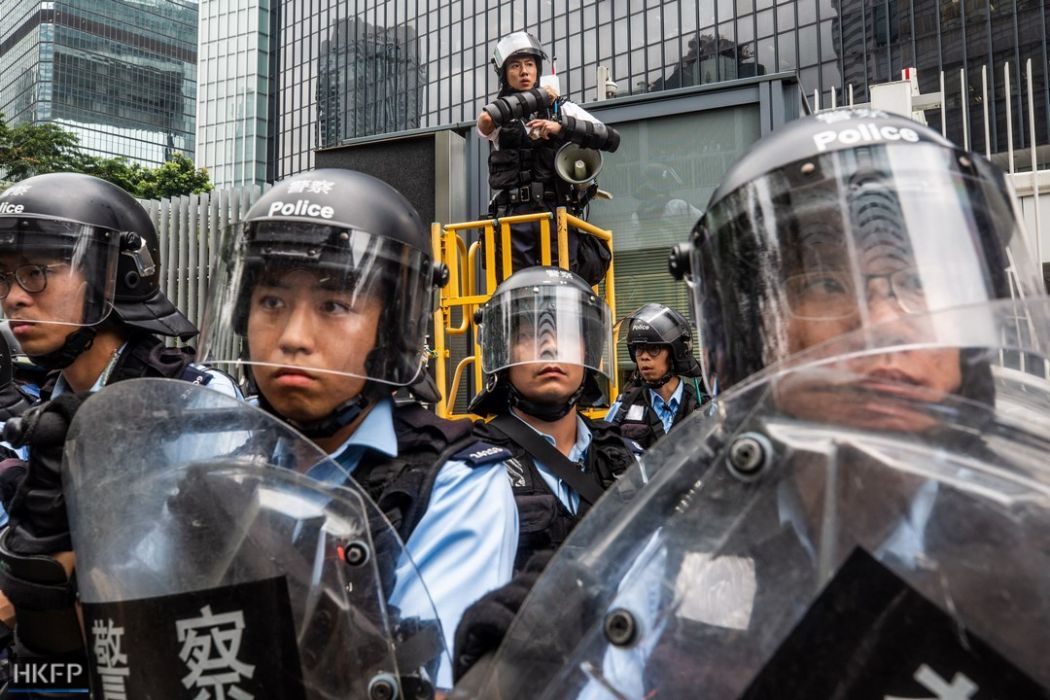
The promise was meant to put hearts at ease ahead of the return to Chinese rule. But the autonomy was tethered to multiple conditions. Some were spelt out in Hong Kong’s new post-1997 Basic Law constitution. Others were only alluded to.
It was the gradual clarification of these constitutional grey areas that led to the build-up of Hong Kong’s insurrectionary spirit because the clarification of the grey areas always seemed to tilt in Beijing’s favour.
So presumably, Beijing would not sit idly by as events unfolded last year. Yet the People’s Liberation Army troop movements and police manoeuvres on both sides of the border came and went. As fears of direct military intervention eased, speculation turned to other possibilities.
The Fourth Plenum: October 28-31, 2019
Beijing would likely reveal its intentions during the delayed Fourth Plenary Session of the 19th Central Committee of the Chinese Communist Party.
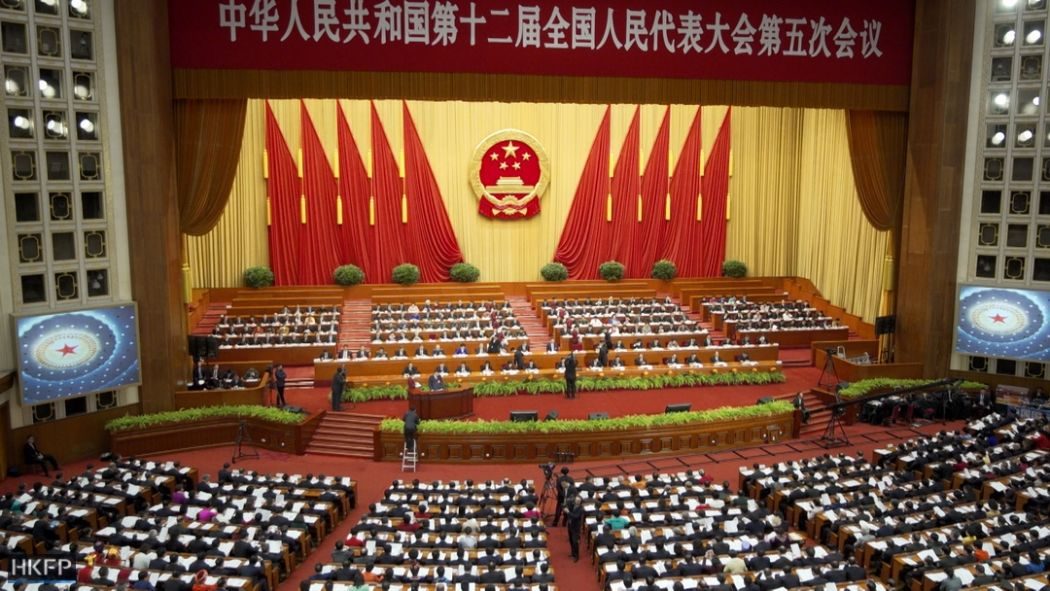
Party Plenums are always occasions for official stock-taking with pointers about future directions. The focus of this one was announced in advance, namely, to strengthen Communist Party rule and China’s governing institutions.
But the meeting came and went in late October without any bombshell announcements. The Communique passed by the Fourth Plenum on October 31, was drafted in the usual dense party prose and made only passing reference to Hong Kong: “We must exercise strict control over the Hong Kong and Macao special administrative regions in accordance with the Constitution and the Basic Law… We will establish and improve the legal system and enforcement mechanisms for safeguarding state security in the special administrative regions.”
Streamlining the chain of command: January-February, 2020
Since there was little elaboration at the time, no one could anticipate what might lay in store. Intimations began to appear soon after the New Year, when Beijing announced some important personnel changes. They included new directors and a streamlined Beijing-Hong Kong chain-of-command within the administrative hierarchy responsible for overseeing Hong Kong affairs.
The new directors are Xia Baolong at the cabinet-level Hong Kong and Macau Affairs Office (HKMAO) in Beijing, and Luo Hui-ning at the central government’s Liaison Office in Hong Kong.

Both men were nearing retirement age, and both had built successful careers as provincial party leaders. Both also had records of loyalty to China’s current paramount leader Xi Jinping.
Luo’s appointment to the Hong Kong office was announced on January 4. The notice of Xia’s appointment to head the HKMAO in Beijing was issued on February 13.
The Spring Offensive: April 2020
February and March were difficult months in Hong Kong as the city pivoted suddenly from the political protest routines of last year to the rigours of disease control.
Initially, in January, the story of how doctors were silenced in the central Chinese city of Wuhan received more attention than the disease itself. Doctors there had tried to raise the alarm about a new pneumonia-like illness that seemed to be associated with the city’s main market.
In Hong Kong, politics and public health merged briefly in a strike by recently organised activist doctors and nurses. They were demanding that China-Hong Kong border crossings be completely closed as the best means of preventing the spread of what was initially called the Wuhan flu. It only received its formal scientific Covid-19 name as it raced like wildfire from one continent to another around the globe.

Small-scale protests continued but the government issued strict new guidelines for Hong Kong’s version of social distancing. Gatherings of more than four people were banned, giving police another new weapon in their arsenal of crowd control measures.
Then, as the number of new flu cases levelled off and declined to near zero, political life revived in dramatic fashion with a blast from Beijing’s newly streamlined bureaucratic hierarchy. The unprecedented outburst was levelled at the pro-democratic members of Hong Kong’s Legislative Council (LegCo).
Their numbers have been reduced by six as the oath-taking saga, that began in 2016, worked its way through the courts with legislative disqualifications the inevitable result.
In any case, the council’s convoluted design has made it almost impossible for democrats to win a majority in the 70-seat chamber. The rules have also been tightened to make filibustering difficult as well. All this was what led to the physical confrontations in and around the council building last summer as the government prepared to override the reservations of its own coalition and force passage of the extradition law.
For now, the democratic caucus has resorted to procedural tactics and, should the government decide to heed Bejing’s calls for prompt passage of national security legislation, such tactics will be democrats’ only defence. The man currently responsible for orchestrating the procedure in a key committee is the Civic Party’s Dennis Kwok Wing-hang.
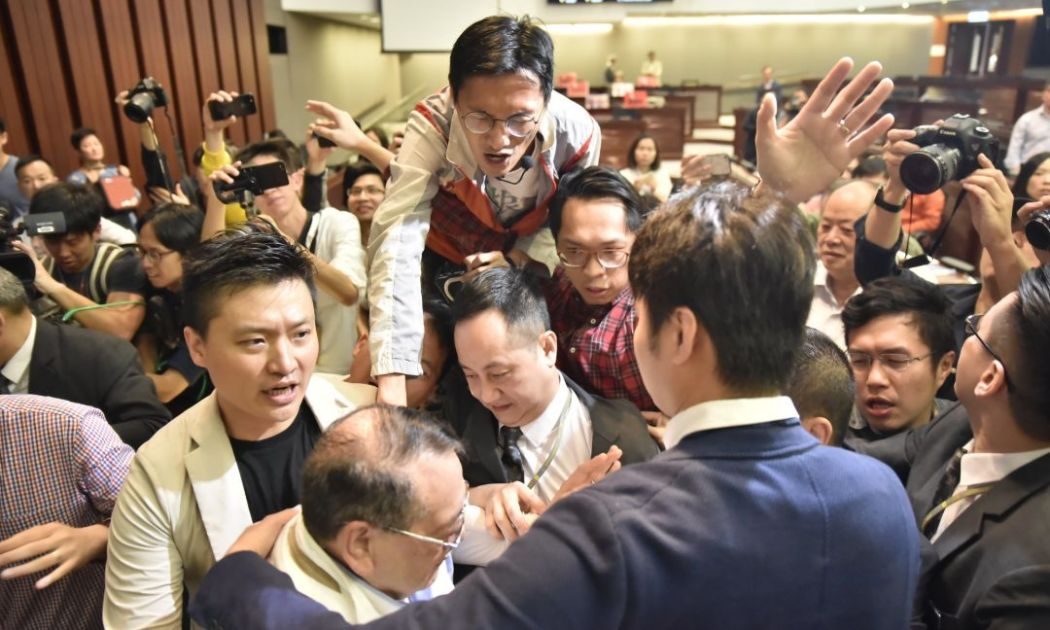
Rather than follow past practice by working behind the scenes while the pro-Beijing media and politicians were out front, both the HKMAO in Bejing and the Liaison Office here joined the controversy with a flourish.
On April 13, the Beijing office issued a statement accusing pro-democracy Legislative Councillors of deliberately obstructing the work of the council’s House Committee. Soon afterwards, the Hong Kong Liaison Office issued a similar statement. Multiple pieces of legislation had been held up as a result of the obstruction that began last October.
Kwok was singled out by name. He and others were likely in breach of their oaths-of-office and responsible for misconduct therein as well.
Such allegations raised the possibility that, if judged guilty by his peers, Kwok could become another disqualification casualty of the 2016-2020 term.
Democrats naturally had a ready reply. So open and specific a charge was something new. Beijing was trying to micro-manage the internal procedures of Hong Kong’s Legislative Council.
The charges were in violation of Hong Kong’s Basic Law constitution that contained all the promises Beijing had made before 1997. In particular, Article 22 says that no department of the Central People’s Government may interfere in the affairs which the Hong Kong Special Administration Region administers on its own.
There followed some embarrassing tongue-twisters before the Hong Kong government finally found itself on the same page as Beijing. In due course, they all agreed. Beijing’s new move was not a violation of Article 22 because the HKMAO and the Liaison Office were not departments under the central government. They were part of the central government.

The Hong Kong Liaison Office issued a press release on April 17, explaining that the two offices were authorised by the central government to handle Hong Kong affairs, and did not belong to the category of departments.
The offices represented the central government. Thus, they have the right to supervise and speak out on Hong Kong affairs related to the Basic Law, the political system, and the interests of society.
Chief Executive Carrie Lam said the same, but her Secretary for Justice Teresa Cheng said it better. At a press briefing later in the month, Cheng said that to fully understand Beijing’s role here, one must look not to Article 22 of the Basic Law, but to Article 12. Article 12 says that after 1997, Hong Kong “shall enjoy a high degree of autonomy” but that Hong Kong will “come directly under the Central People’s Government.”
Explaining further, Cheng said that the Liaison Office here reports to the central government in overseeing and supervising Hong Kong’s implementation of the Basic Law.
Interference in Hong Kong affairs, as many are now asserting, actually refers to an overreach of authority without legal basis. But the Liaison Office has legal authority by reason of Article 12, which evidently supersedes Article 22 (China Daily, paper edition, April 28).

The April offensive ended with a dramatic mass arrest scene targeting 15 prominent leaders of Hong Kong’s democracy movement. They included none of the new style localists and pro-independence advocates who have staked out a place for themselves along the most radical wing of the movement.
But those arrested are among its most outspoken members including both old and young. And all are routinely caricatured in the pro-Beijing media as villains and traitors who would rather lobby for protection in London and Washington than defer to the authority of their sovereign in Beijing.
They are also frequently labelled as advocates of Hong Kong independence, even though none of them has ever done this. But they do challenge Beijing’s reading of its Basic Law promises, which is enough to warrant the allegation about demanding independence.
The 15 were arrested on April 18, for having participated in one of last year’s many illegal rallies. Such gatherings are regarded as illegal if they have not received police permission beforehand.
The arrest of such high-profile individuals in so high-profile a manner was presumably meant to serve as a warning to others that, as Beijing messaging repeatedly declares, illegal behaviour must not be allowed to go unpunished.
Clarifying Hong Kong’s Basic Law: the spirit of the Fourth Plenum
What to make of Bejing’s new up-front drive to set its Hong Kong house in order? The question was put to Anthony Cheung Bing-leung during a TV interview on April 28.
Cheung is an academic with ties to both camps. Once a member of Hong Kong’s Democratic Party, he later served as minister for transport and housing during Leung Chun-ying’s tenure as Chief Executive (2012-2017).
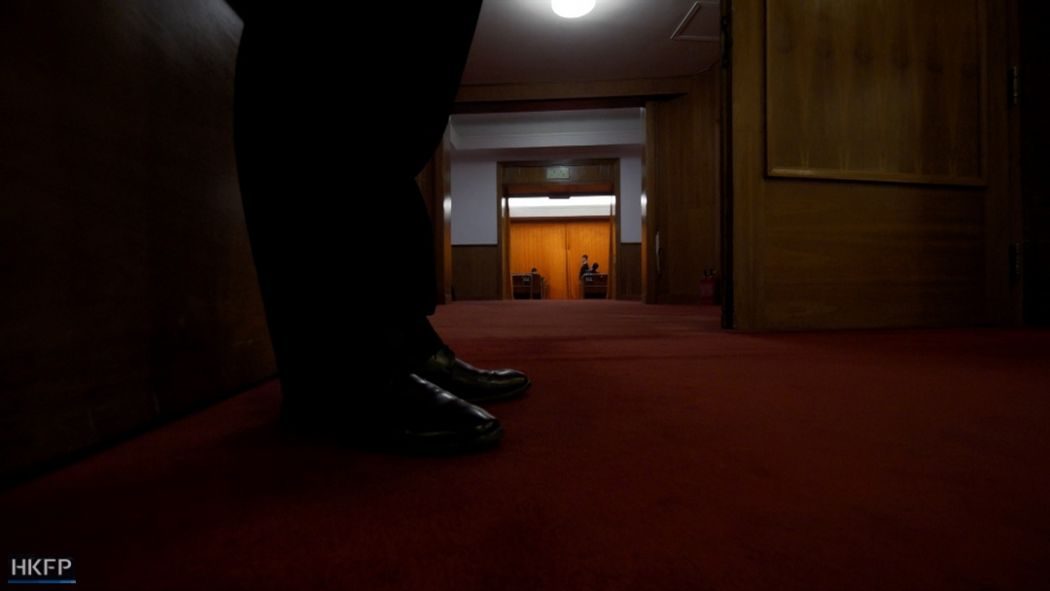
Cheung suggested that in situations such as the one in which the government now finds itself, when the Chief Executive and the pro-establishment camp lack the ability to break the LegCo deadlock ongoing since last October, Beijing can help out as it is doing now.
To back up his assertion, he cited the authority of the Communist Party’s Fourth Plenum last October and mentioned an explanatory article attributed to the then HKMAO director Zhang Xiaoming. The article had elaborated on the significance for Hong Kong of the Fourth Plenum’s Communique dated October 31, 2019.
In fact, the Chinese-language Ming Pao Daily had published, on November 10 last year, a long account of Zhang’s article introducing the “spirit of the Fourth Plenum.” But it was a time where disorder in Hong Kong had reached its peak, with universities under siege, public transport disrupted, shopping malls being vandalised and candidates trying to campaign for the coming District Councils election.
So the Fourth Plenum’s message had little impact at the time, but Zhang’s article listed ten powers enjoyed by the central government in exercising its comprehensive jurisdiction over Hong Kong. That particular term, comprehensive jurisdiction, was only added to the lexicon in 2014 at the time of the electoral reform controversy.
The ten powers represent the legal authority of Teresa Cheng’s reference and the powers party leaders in Beijing have evidently decided they need in order to curb what they see as serious uncontrollable misbehaviour here.

Among the ten powers, some are standard and settled features of the Basic Law. These include the power to manage Hong Kong’s foreign and military affairs, as well as to amend and interpret Hong Kong’s Basic Law constitution.
But Beijing is also now asserting that it has supervisory power over areas of Hong Kong’s high degree of autonomy, especially in terms of the laws Hong Kong passes and the exercise of its own powers.
This is deemed necessary in order to ascertain whether anything violates China’s constitution, or Hong Kong’s own Basic Law, or the “One Country, Two Systems” principle, which governs Hong Kong’s relationship with Beijing.
The central government appoints the Chief Executive and principal officials, and the power of appointment is both formal and substantive. The centre instructs and directs Hong Kong’s Chief Executive.
As and when necessary, the centre can issue new instructions. Finally, these measures must be systematised, standardised, and regularised.
Evidently, all the high-sounding promises of 1997 that were written into Hong Kong’s new Basic Law constitution are for Beijing leaders to elaborate and define as they see fit.
Here in Hong Kong, everyone seems to have overlooked Zhang Xiaoming’s explanatory notes on the spirit of the Fourth Plenum. The reinforced streamlined Bejing-Hong Kong chain-of-command is trying to make sure the lessons do not remain unlearned.
